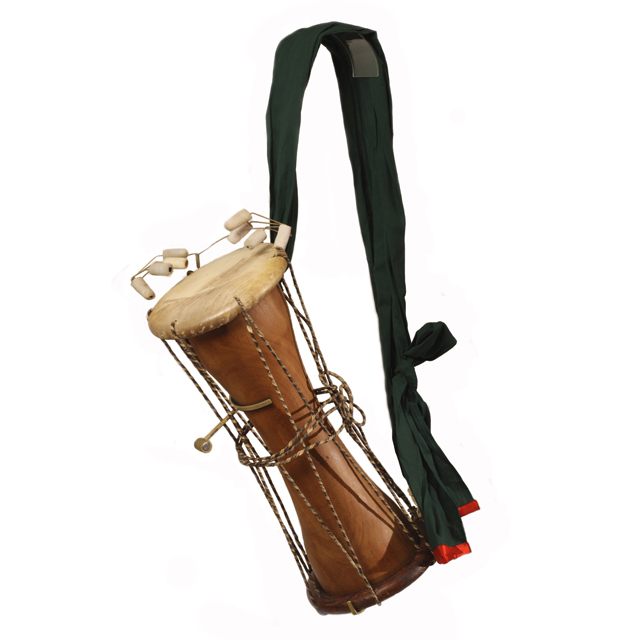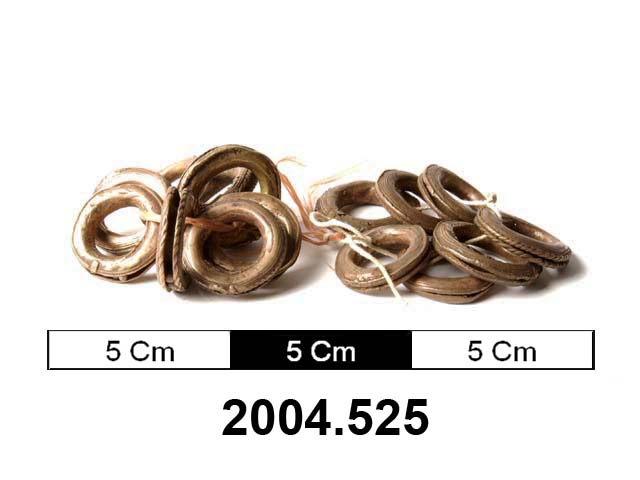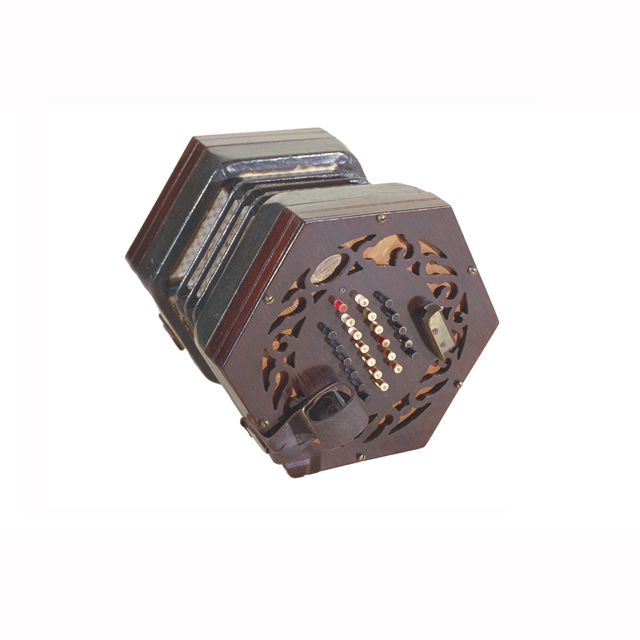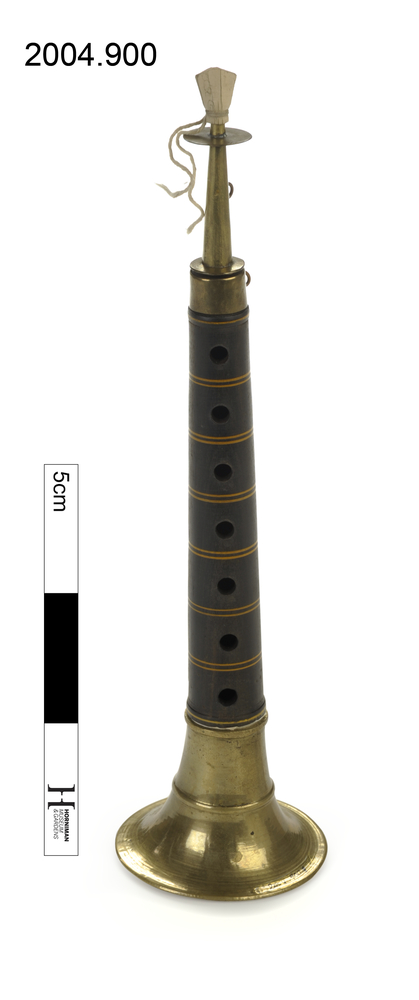
Timila (thimila) hourglass shaped double membrane drum, only one membrane played (monofacial). Secured with vegetable fibre binding. Integral attached shoulder belt in green cotton with red trim.
The timila drum leads the pancavadyam, a temple orchestra that plays for Hindu rituals and festivals in Kerala. When playing, the timila player stoops forwards so that the drum, hanging from shoulder straps, is almost horizontal. He uses both hands to play the drum. Most musicians today use fitted thimble-like finger caps (citte) made of rice paste and cotton to protect their fingers whilst they are taking part in performances that can last up to five hours. Like other temple ensembles in Kerala, the pancavdyam, meaning 'five instruments' is dominated by percussion. Four instruments out of the five belong in this category: the timila, maddalam and idakka drums, and ilatalam cymbals. The kombu, trumpet, is also part of the ensemble. The sound of the conch trumpet, sankh, symbolises the sacred syllable Aum, and the instrument is blown three times before the pancavadyam ensemble begins to play. Panacavadyam music includes both fixed compositions and improvisation. The tempo of the music increases as the number of beats in the time cycle decreases, making pancavadyam music compelling and exhilarating for participants and listeners alike.






